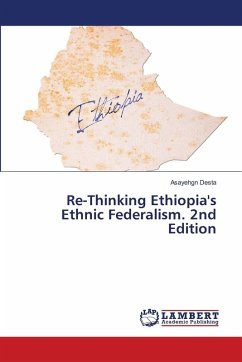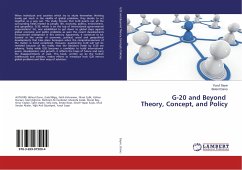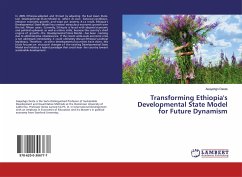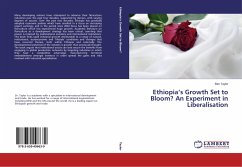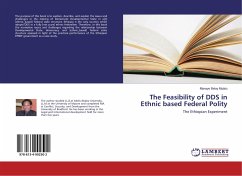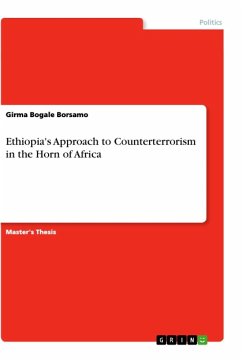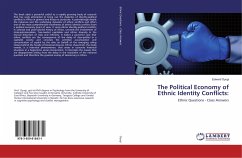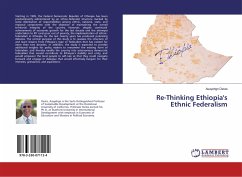
Re-Thinking Ethiopia's Ethnic Federalism
Versandkostenfrei!
Versandfertig in 6-10 Tagen
14,99 €
inkl. MwSt.

PAYBACK Punkte
7 °P sammeln!
Starting in 1995, the Federal Democratic Republic of Ethiopia has been predominantly administered by an ethno-federalist structure marked by some distribution of responsibilities among ethnic, national, state, and regional components with the objective of maintaining the overall territorial integrity of the country. However, despite continued achievements of economic growth for the last decade and the attempts undertaken to lift rural poor out of poverty, the implementation of ethnic-federalism in Ethiopia for the last twenty years has produced polarizing debates. The central purpose of this s...
Starting in 1995, the Federal Democratic Republic of Ethiopia has been predominantly administered by an ethno-federalist structure marked by some distribution of responsibilities among ethnic, national, state, and regional components with the objective of maintaining the overall territorial integrity of the country. However, despite continued achievements of economic growth for the last decade and the attempts undertaken to lift rural poor out of poverty, the implementation of ethnic-federalism in Ethiopia for the last twenty years has produced polarizing debates. The central purpose of this study is to reassess the structure of and learn lessons from Ethiopia's type of federalism that has existed for more than two decades. In addition, the study is expected to provide additional insights for policy makers to reexamine the existing form of federalism, and thereby modify the country into autonomous democratic federalism that would contribute to Ethiopia's stability and unity, and would empower the local people to self-rule so that they could navigate forward and engage in dialogue that would effectively bargain for their interests, grievances, and aspirations.



